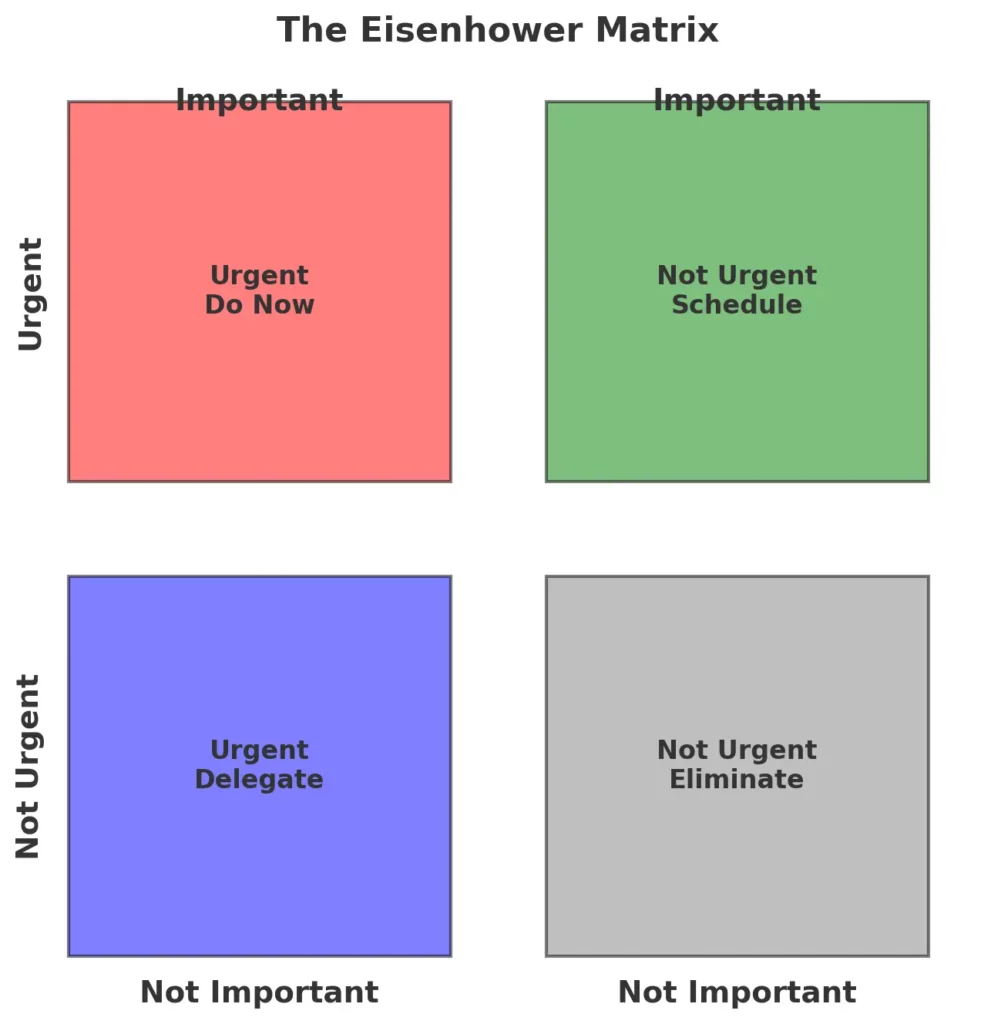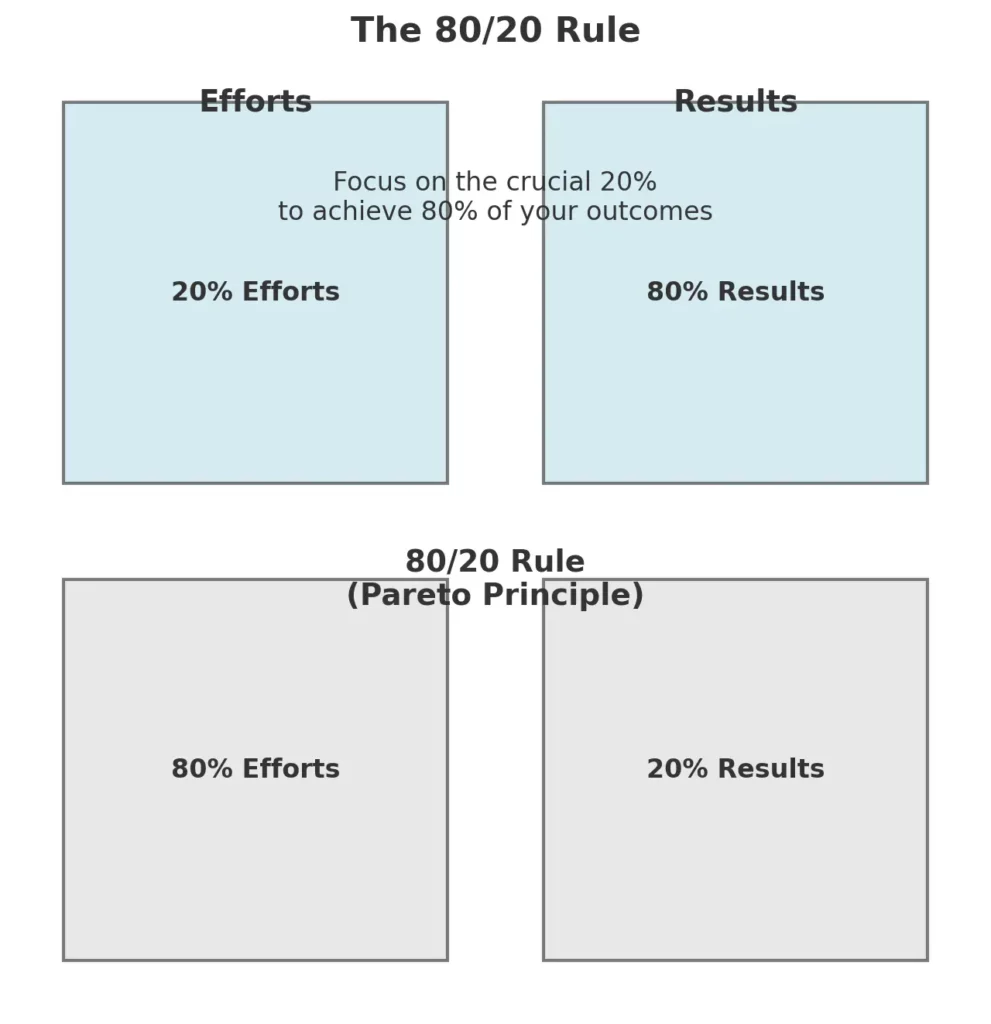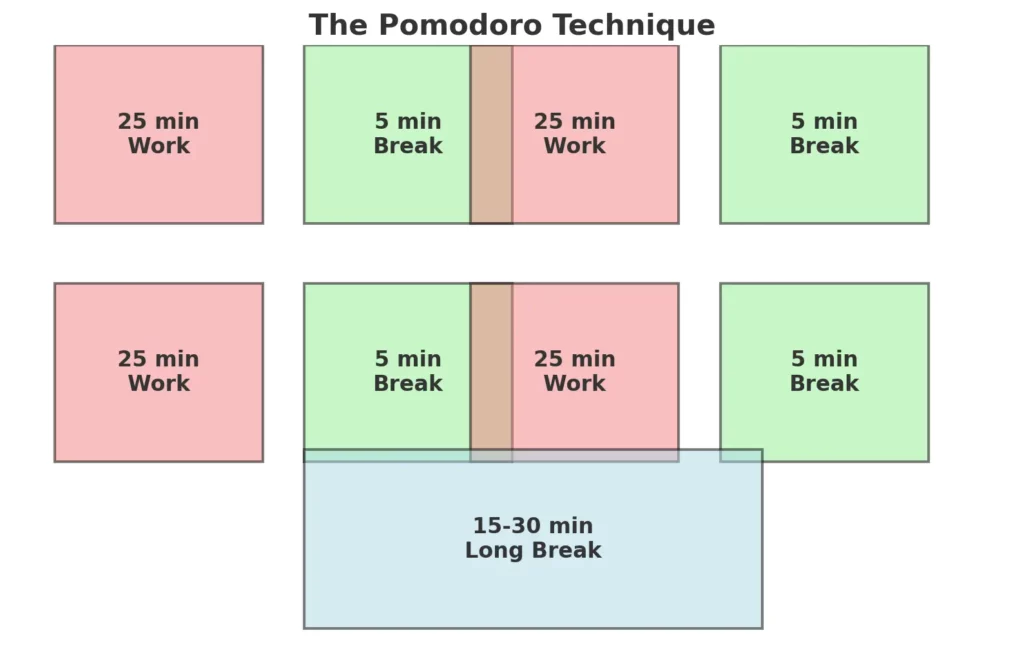Time is the most valuable resource we have, especially when you’re a young professional trying to juggle work, personal life, and everything in between. According to a study conducted by Workfront, the average young professional wastes up to 2.5 hours a day due to poor time management.
Over a year, that adds up to nearly 600 hours—equivalent to 25 days! Imagine what you could achieve with an extra month each year.
Mastering time management can help you get more done, reduce stress and anxiety, and achieve your goals. Here are some practical time management tips for young professionals to help you make the most of your time and stay on top of your game.
Choose a Method
There’s no one technique of working efficiently that will suit everyone. The techniques used by Billy Bob to help him succeed may actually be a hindrance to your own performance style. There are some tried and true popular time management techniques that have been proven to be successful for many.
The Eisenhower Matrix
The Eisenhower Matrix is a time management tool that helps you prioritize tasks based on their importance and urgency. It divides tasks into four categories: important and urgent (tasks to do immediately), important but not urgent (tasks to plan for later), not important but urgent (tasks to delegate), and not important and not urgent (tasks to eliminate). By sorting tasks this way, you can focus on what truly matters and manage your time more effectively.

How can you apply it to your life?
Make a List: Write down everything you need to do.
Sort the List: Put each task into one of the four boxes.
- If it’s Important and Urgent, do it now.
- If it’s Important but Not Urgent, schedule a time to do it later.
- If it’s Not Important but Urgent, see if someone else can do it.
- If it’s Not Important and Not Urgent, think about not doing it at all.
Take Action: Start with the tasks in the Important and Urgent box, then move to the Important but Not Urgent box. Delegate what you can and avoid doing the things that aren’t important or urgent.
The 80/20 Rule
The 80/20 Rule, also known as the Pareto Principle, states that roughly 80% of the results come from 20% of the efforts. This means that a small portion of your actions or inputs often leads to the majority of your outcomes or rewards. By identifying and focusing on this crucial 20%, you can maximize efficiency and productivity, ensuring that your most valuable activities receive the attention and resources they deserve.

How can you apply it to your life?
- Identify Key Activities: Determine which tasks or activities provide the greatest benefits or satisfaction. These constitute your crucial 20%.
- Prioritize the 20%: Allocate more time and resources to these essential activities. For instance, if 20% of your clients generate 80% of your revenue, focus on nurturing and expanding those key client relationships.
- Minimize Less Productive Tasks: Decrease the time spent on activities that yield minimal benefits. For example, if spending time on social media does not significantly contribute to your personal or professional growth, consider reducing this activity.
Use the Pomodoro Technique
The Pomodoro Technique is a time management method that involves breaking work into intervals, traditionally 25 minutes in length, called “Pomodoros,” separated by short 5 minute breaks. After completing four Pomodoros, you take a longer break. This technique helps improve focus and productivity by encouraging consistent short bursts of concentrated work, reducing the likelihood of burnout and enhancing overall time management.

How can you apply it to your life?
- Set a Timer: Pick a task you want to work on and set a timer for 25 minutes. This 25-minute period is called a “Pomodoro.”
- Work on the Task: Focus on your task and work on it without any interruptions until the timer goes off.
- Take a Short Break: Once the timer rings, take a 5-minute break. Stretch, grab a snack, or just relax.
- Repeat: Do another 25-minute work session (Pomodoro) followed by a 5-minute break. After completing four Pomodoros, take a longer break, around 15-30 minutes.
Tips To Plan Your Day

Having a plan for your day can help you stay organized and on track and establishing a daily routine can dramatically enhance productivity. Morning routines, in particular, set the tone for the day. For instance, starting the day with a brief planning session can make the entire day more productive.
- Daily Top Three: At the start of each day, identify the top three tasks you need to accomplish. These should be your main focus.
- Time Blocking: Allocate specific blocks of time for different tasks or activities. This helps you stay focused and prevents multitasking.
- Use a Planner: Whether it’s a digital app or a physical planner, keep track of your tasks, appointments, and deadlines in one place.
- Set Deadlines: Even for tasks that don’t have a strict deadline, set a personal deadline to keep yourself accountable.
Minimize Distractions

Distractions are the enemy of productivity. Here’s how to minimize them:
- Create a Dedicated Workspace: Set up a space where you can work without interruptions. This signals to your brain that it’s time to focus.
- Limit Social Media: Use apps or browser extensions to block social media sites during work hours.
- Turn Off Notifications: Silence notifications on your phone and computer to stay focused on your tasks.
Learn to Say No

Young professionals often take on too much. Learning to say no to tasks that don’t align with their goals can help them focus on what’s truly important. Saying yes to everything can lead to burnout and decreased productivity. Learn to say no when necessary.
- Set Boundaries: Be clear about your availability and workload with colleagues and friends.
- Prioritize Your Commitments: Focus on commitments that align with your goals and values.
- Delegate: If possible, delegate tasks that others can handle.
Take Care of Yourself

Your productivity is directly linked to your well-being. Make self-care a priority.
- Get Enough Sleep: Aim for 7-9 hours of sleep per night to ensure you’re well-rested and alert.
- Exercise Regularly: Physical activity can boost your energy levels and improve your focus.
- Eat Healthily: Fuel your body with nutritious foods to maintain energy and concentration.
Reflect and Adjust

Regularly review your time management strategies and make adjustments as needed.
- Weekly Review: At the end of each week, review what you accomplished and identify areas for improvement.
- Adjust Your Plan: Be flexible and adjust your plan based on what’s working and what’s not.
- Celebrate Your Wins: Acknowledge and celebrate your achievements, no matter how small.
Also Read:




